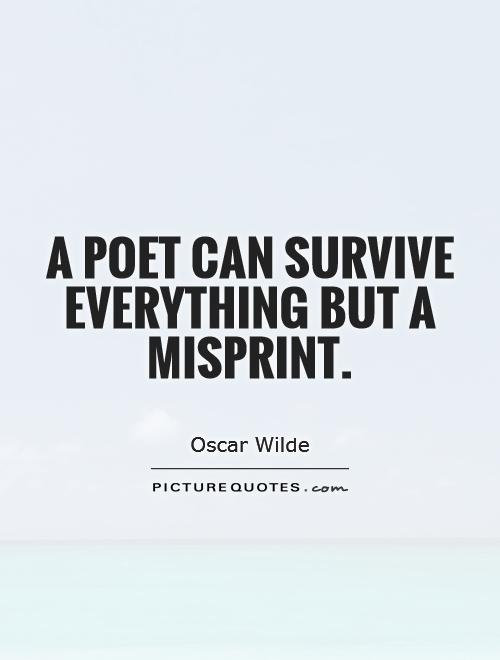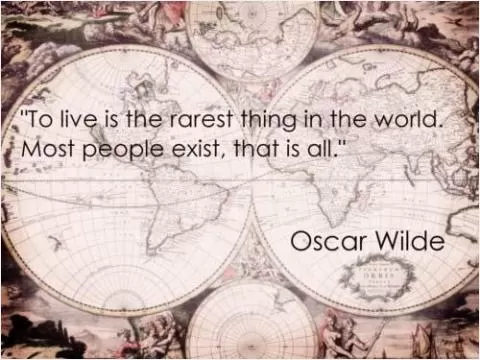A poet can survive everything but a misprint

A poet can survive everything but a misprint
Oscar Wilde, the renowned Irish poet and playwright, once famously said, "A poet can survive everything but a misprint." This statement speaks volumes about the importance of precision and accuracy in the world of poetry, where every word and punctuation mark holds immense significance.Wilde, known for his wit and sharp tongue, understood the power of language and the impact that even the smallest error could have on a poem. A misprint, a typo, a misplaced comma - these seemingly minor mistakes can alter the meaning of a poem, disrupt its flow, and diminish its impact on the reader. For a poet like Wilde, whose words were his livelihood and his legacy, such errors were not to be taken lightly.
In Wilde's time, the printing press was the primary means of disseminating poetry to the masses. A misprint in a published poem could not only tarnish the poet's reputation but also distort the intended message of the work. Wilde, a perfectionist in his craft, would have been acutely aware of the potential consequences of a misprint on his carefully crafted verses.
Furthermore, Wilde's statement can also be interpreted metaphorically. In the tumultuous life of a poet, filled with rejection, criticism, and personal struggles, it is often the missteps and setbacks that prove to be the most challenging to overcome. A misprint, in this sense, could represent any number of obstacles that a poet must face - be it creative block, self-doubt, or external pressures.
Despite the challenges that a poet may encounter, Wilde believed that true artistry and resilience could prevail in the face of adversity. A misprint may be a temporary setback, but a skilled poet has the ability to adapt, revise, and ultimately triumph over any obstacles in their path.












 Friendship Quotes
Friendship Quotes Love Quotes
Love Quotes Life Quotes
Life Quotes Funny Quotes
Funny Quotes Motivational Quotes
Motivational Quotes Inspirational Quotes
Inspirational Quotes